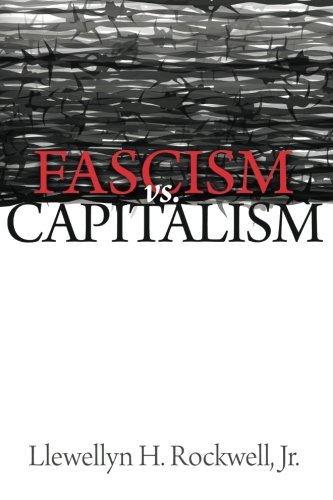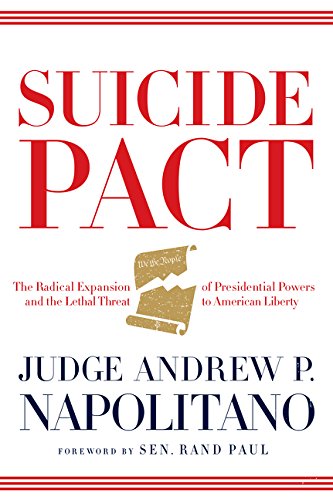The Reagan administration pulled right-wing media executives Rupert Murdoch and Richard Mellon Scaife into a CIA-organized “perception management” operation which aimed Cold War-style propaganda at the American people in the 1980s, according to declassified U.S. government records.
Although some records relating to Murdoch remain classified, several documents that have been released indicate that he and billionaire Scaife were considered sources of financial and other support for President Ronald Reagan’s hard-line Central American policies, including the CIA’s covert war in Nicaragua.
A driving force behind creation of Reagan’s extraordinary propaganda bureaucracy was CIA Director William Casey who dispatched one of the CIA’s top covert action specialists, Walter Raymond Jr., to the National Security Council to oversee the project. According to the documents, Murdoch was brought into the operation in 1983 – when he was still an Australian citizen and his media empire was much smaller than it is today.
Charles Wick, director of the U.S. Information Agency, arranged at least two face-to-face meetings between Murdoch and Reagan, the first on Jan. 18, 1983, when the administration was lining up private financing for its propaganda campaign, according to records at the Reagan presidential library in Simi Valley, California. That meeting also included lawyer and political operative Roy Cohn and his law partner Thomas Bolan.
The Oval Office meeting between Reagan and Murdoch came just five days after NSC Advisor William Clark noted in a Jan. 13, 1983 memo to Reagan the need for non-governmental money to advance the project. “We will develop a scenario for obtaining private funding,” Clark wrote, as cited in an unpublished draft chapter of the congressional Iran-Contra investigation.
Clark then told the President that “Charlie Wick has offered to take the lead. We may have to call on you to meet with a group of potential donors.”
The documents suggest that Murdoch was soon viewed as a source for that funding. In an Aug. 9, 1983 memo summing up the results of a Casey-organized meeting with five leading ad executives regarding how to “sell” Reagan’s aggressive policies in Central America, Raymond referred to Murdoch as if he already were helping out.
 Progressivism: A Prime...
Best Price: $8.99
Buy New $10.95
(as of 08:30 UTC - Details)
In a memo to Clark, entitled “Private Sector Support for Central American Program,” Raymond criticized a more traditional White House outreach program headed by Faith Whittlesey as “preaching to the converted.”
Progressivism: A Prime...
Best Price: $8.99
Buy New $10.95
(as of 08:30 UTC - Details)
In a memo to Clark, entitled “Private Sector Support for Central American Program,” Raymond criticized a more traditional White House outreach program headed by Faith Whittlesey as “preaching to the converted.”
Raymond told Clark that the new project would involve a more comprehensive approach aimed at persuading a majority of Americans to back Reagan’s Central American policies, which included support for right-wing regimes in Guatemala and El Salvador as well as the Contra rebels fighting the leftist Sandinista government of Nicaragua.
“We must move out into the middle sector of the American public and draw them into the ‘support’ column,” Raymond wrote. “A second package of proposals deal with means to market the issue, largely considering steps utilizing public relations specialists – or similar professionals – to help transmit the message.”
To improve the project’s chances for success, Raymond wrote, “we recommended funding via Freedom House or some other structure that has credibility in the political center. Wick, via Murdoch, may be able to draw down added funds for this effort.”
 Fascism versus Capitalism
Best Price: $3.39
Buy New $7.45
(as of 05:45 UTC - Details)
Fascism versus Capitalism
Best Price: $3.39
Buy New $7.45
(as of 05:45 UTC - Details)
Raymond included similar information in a separate memo to Wick in which Raymond noted that “via Murdock [sic] may be able to draw down added funds” to support the initiative. (Raymond later told me that he was referring to Rupert Murdoch.)
In a March 7, 1984 memo about the “‘Private Funders’ Project,” Raymond referred to Murdoch again in discussing a request for money from longtime CIA-connected journalist Brian Crozier, who was “looking for private sector funding to work on the question of ‘anti-Americanism’ overseas.”
 Real Dissent: A Libert...
Best Price: $8.48
Buy New $7.93
(as of 03:10 UTC - Details)
Raymond wrote: “I am pursuaded [sic] it is a significant long term problem. It is also the kind of thing that Ruppert [sic] and Jimmy might respond positively to. Please look over the stack [of papers from Crozier] and lets [sic] discuss if and when there might be further discussion with our friends.”
Real Dissent: A Libert...
Best Price: $8.48
Buy New $7.93
(as of 03:10 UTC - Details)
Raymond wrote: “I am pursuaded [sic] it is a significant long term problem. It is also the kind of thing that Ruppert [sic] and Jimmy might respond positively to. Please look over the stack [of papers from Crozier] and lets [sic] discuss if and when there might be further discussion with our friends.”
Crozier, who died in 2012, had a long history of operating in the shadowy world of CIA propaganda. He was director of Forum World Features, which was set up in 1966 by the Congress for Cultural Freedom, which received covert funding from the CIA. Crozier also acknowledged in his memoir keeping some of his best stories for the CIA.
At least one other document related to Murdoch’s work with USIA Director Wick remains classified, according to the National Archives. Murdoch’s News Corp. has not responded to requests for comment about the Reagan-era documents.
Helping Murdoch
 Suicide Pact: The Radi...
Best Price: $0.25
Buy New $2.84
(as of 04:15 UTC - Details)
Suicide Pact: The Radi...
Best Price: $0.25
Buy New $2.84
(as of 04:15 UTC - Details)
Murdoch, who became a naturalized citizen of the United States in 1985 to meet a regulatory requirement that U.S. TV stations must be owned by Americans, benefited from his close ties to both U.S. and British officialdom.
On Monday, the UK’s Independent reported that Ed Richards, the retiring head of the British media regulatory agency Ofcom, accused British government representatives of showing favoritism to Murdoch’s companies.
Richards said he was “surprised” by the informality, closeness and frequency of contact between executives and ministers during the failed bid by Murdoch’s News Corp. for the satellite network BSkyB in 2011. The deal was abandoned when it was discovered that journalists at Murdoch’s News of the World tabloid had hacked the phone of murdered schoolgirl Milly Dowler and others.
 Amazon Prime (One Year...
Check Amazon for Pricing.
“What surprised everyone about it – not just me – was quite how close it was and the informality of it,” Richards said, confirming what had been widely reported regarding Murdoch’s access to powerful British politicians dating back at least to the reign of Prime Minister Margaret Thatcher in the 1980s. The Reagan documents suggest that Murdoch built similarly close ties to leading U.S. politicians in the same era.
Amazon Prime (One Year...
Check Amazon for Pricing.
“What surprised everyone about it – not just me – was quite how close it was and the informality of it,” Richards said, confirming what had been widely reported regarding Murdoch’s access to powerful British politicians dating back at least to the reign of Prime Minister Margaret Thatcher in the 1980s. The Reagan documents suggest that Murdoch built similarly close ties to leading U.S. politicians in the same era.
In 1983, Murdoch’s rising media empire was still based in Australia with only a few U.S. properties, such as the Star tabloid and the New York Post. But he was eyeing expansion into the U.S. media market. In 1984, he bought a stake in 20th Century Fox and then six Metromedia television stations, which would form the nucleus of Fox Broadcasting Company, which was founded on Oct. 9, 1986.
At the time, Murdoch and other media moguls were lobbying for a relaxation of regulations from the Federal Communications Commission, a goal that Reagan shared. Under FCC Chairman Mark Fowler, the Reagan administration undertook a number of steps favorable to Murdoch’s interests, including increasing the number of TV stations that any single entity could own from seven in 1981 to 12 in 1985.
In 1987, the “Fairness Doctrine,” which required political balance in broadcasting, was eliminated, which enabled Murdoch to pioneer a more aggressive conservatism on his TV network. In the mid-1990s, Murdoch expanded his political reach by founding the neoconservative Weekly Standard in 1995 and Fox News on cable in 1996. At Fox News, Murdoch has hired scores of prominent politicians, mostly Republicans, putting them on his payroll as commentators.
Last decade, Murdoch continued to expand his reach into U.S. mass media, acquiring DirecTV and the financial news giant Dow Jones, including The Wall Street Journal, America’s leading business news journal.





